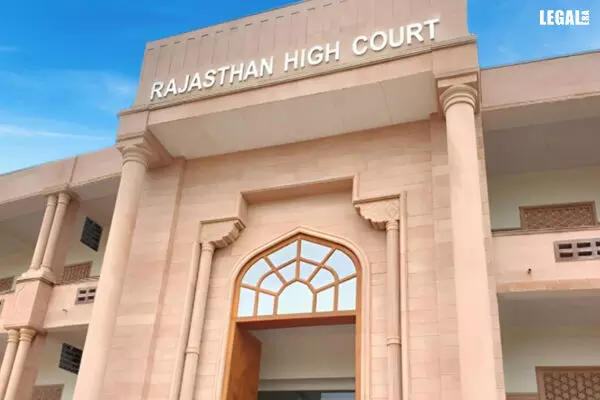- Home
- News
- Articles+
- Aerospace
- Artificial Intelligence
- Agriculture
- Alternate Dispute Resolution
- Arbitration & Mediation
- Banking and Finance
- Bankruptcy
- Book Review
- Bribery & Corruption
- Commercial Litigation
- Competition Law
- Conference Reports
- Consumer Products
- Contract
- Corporate Governance
- Corporate Law
- Covid-19
- Cryptocurrency
- Cybersecurity
- Data Protection
- Defence
- Digital Economy
- E-commerce
- Employment Law
- Energy and Natural Resources
- Entertainment and Sports Law
- Environmental Law
- Environmental, Social, and Governance
- Foreign Direct Investment
- Food and Beverage
- Gaming
- Health Care
- IBC Diaries
- In Focus
- Inclusion & Diversity
- Insurance Law
- Intellectual Property
- International Law
- IP & Tech Era
- Know the Law
- Labour Laws
- Law & Policy and Regulation
- Litigation
- Litigation Funding
- Manufacturing
- Mergers & Acquisitions
- NFTs
- Privacy
- Private Equity
- Project Finance
- Real Estate
- Risk and Compliance
- Student Corner
- Take On Board
- Tax
- Technology Media and Telecom
- Tributes
- Viewpoint
- Zoom In
- Law Firms
- In-House
- Rankings
- E-Magazine
- Legal Era TV
- Events
- Middle East
- Africa
- News
- Articles
- Aerospace
- Artificial Intelligence
- Agriculture
- Alternate Dispute Resolution
- Arbitration & Mediation
- Banking and Finance
- Bankruptcy
- Book Review
- Bribery & Corruption
- Commercial Litigation
- Competition Law
- Conference Reports
- Consumer Products
- Contract
- Corporate Governance
- Corporate Law
- Covid-19
- Cryptocurrency
- Cybersecurity
- Data Protection
- Defence
- Digital Economy
- E-commerce
- Employment Law
- Energy and Natural Resources
- Entertainment and Sports Law
- Environmental Law
- Environmental, Social, and Governance
- Foreign Direct Investment
- Food and Beverage
- Gaming
- Health Care
- IBC Diaries
- In Focus
- Inclusion & Diversity
- Insurance Law
- Intellectual Property
- International Law
- IP & Tech Era
- Know the Law
- Labour Laws
- Law & Policy and Regulation
- Litigation
- Litigation Funding
- Manufacturing
- Mergers & Acquisitions
- NFTs
- Privacy
- Private Equity
- Project Finance
- Real Estate
- Risk and Compliance
- Student Corner
- Take On Board
- Tax
- Technology Media and Telecom
- Tributes
- Viewpoint
- Zoom In
- Law Firms
- In-House
- Rankings
- E-Magazine
- Legal Era TV
- Events
- Middle East
- Africa
High Courts Are Prohibited from Considering Appeals That Determine Excise Duty Rates or Valuation of Goods for Assessment: Rajasthan High Court

High Courts Are Prohibited from Considering Appeals That Determine Excise Duty Rates or Valuation of Goods for Assessment: Rajasthan High Court
The Jaipur Bench of the Rajasthan High Court has ruled that the High Court may entertain appeals if it deems the case to involve a significant legal question. However, appeals concerning matters related to excise duty rates or the valuation of goods for assessment purposes will not be accepted.
Justices Pankaj Bhandari and Shubha Mehta, presiding over the bench, noted that the respondent had been granted an exemption from paying central excise duty under the SSI (Small Scale Industries) category. They emphasized that if this exemption were to be revoked, excise duty would become applicable. Consequently, any order concerning this exemption withdrawal would pertain to matters related to excise duty rates. Additionally, in the event of exemption withdrawal, goods would be re-evaluated for assessment purposes, falling within the exception outlined in Clause 1 of Section 35G of the Central Excise Act, 1944.
The appellant/department has filed an appeal under Section 35G of the Central Excise Act, 1944, challenging the decision rendered by the Excise and Service Tax Appellate Tribunal.
The respondent/assessee has raised an objection regarding the admissibility of the appeal under Section 35G of the Central Excise Act, 1944. It is argued that if the SSI exemption is withdrawn, excise duty would become applicable, thereby falling within the exception outlined in Section 35G.
The appellant/department argued that the SSI exemption is applicable only when the turnover is less than Rs. 1 crore. Since the assessee has three undertakings, they were not eligible for exemptions, leading to the withdrawal of SSI exemptions by the department. It is further contended that the restriction outlined in Clause 1 of Section 35G would not be applicable, and therefore, the High Court would have jurisdiction to consider the appeal.
The court determined that due to a specific prohibition on entertaining appeals related to the rate of duty of excise or the value of goods for assessment purposes, the present appeal is not maintainable before the High Court.



